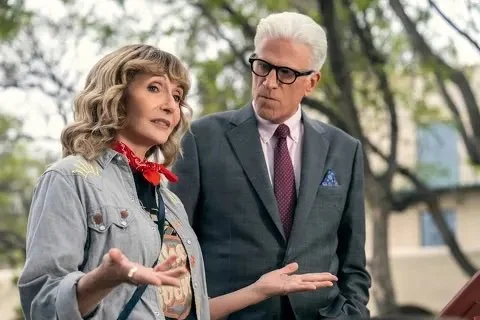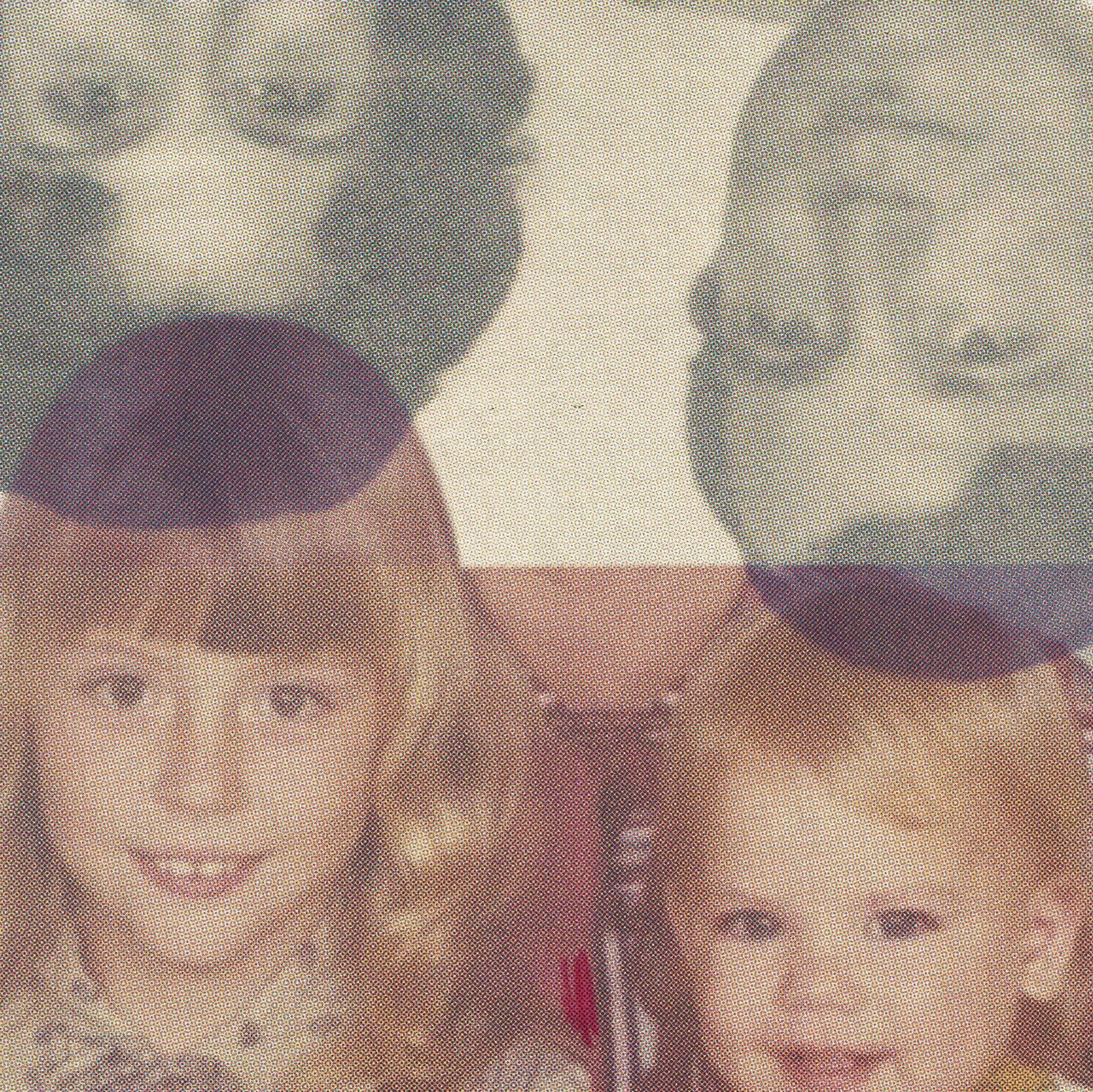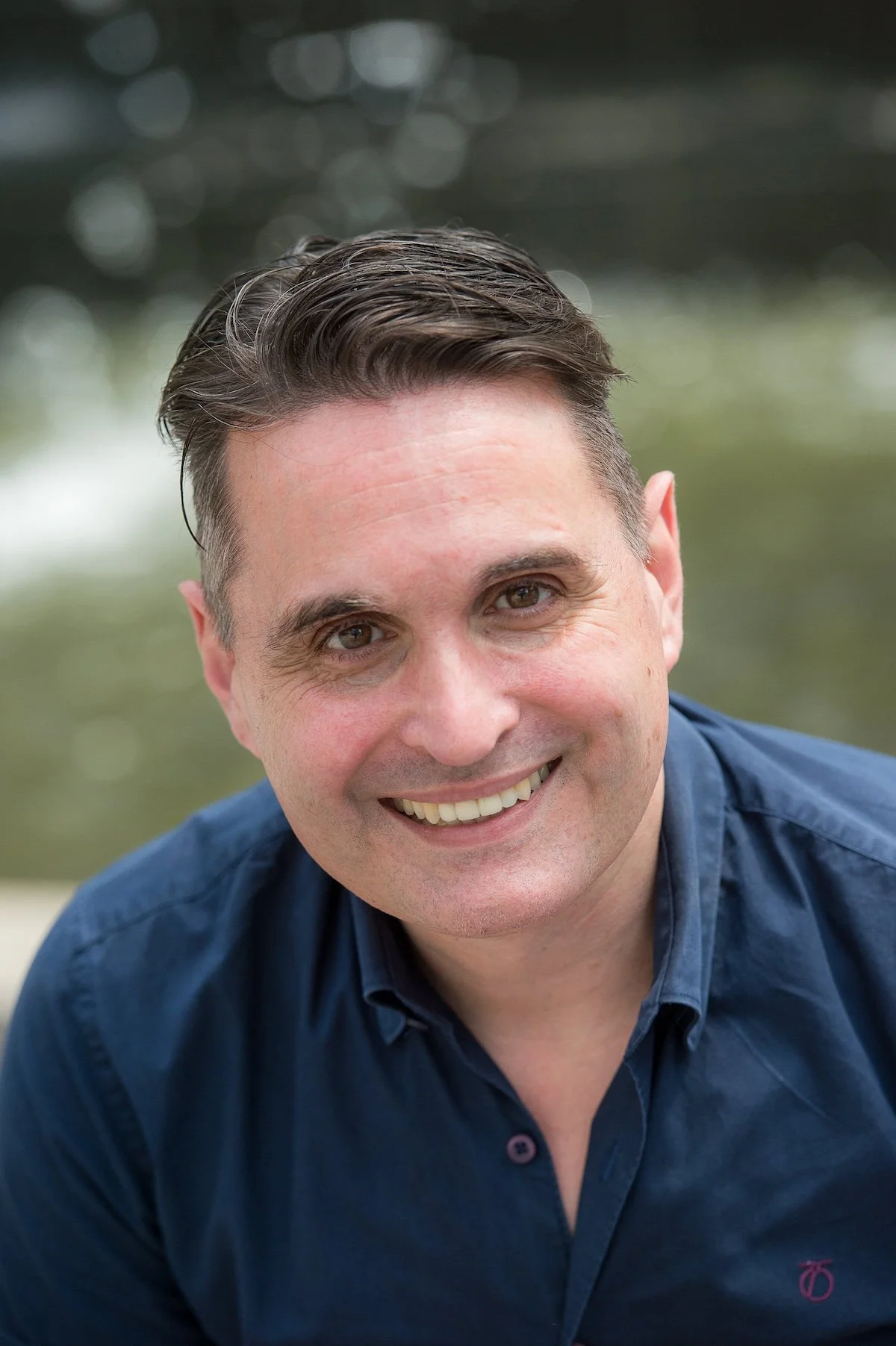
Through curated articles, interviews, and original research and content, we feature the policies, programs, and people reimagining the aging experience. Explore the latest ideas and insights.
Events, Opportunities & Activities
The 4th annual Longevity Summit, “The Future of Medicine: Eliminating Diseases of Aging,” is taking place December 9-10 at the Buck Institute for Research on Aging in Novato, CA. Speakers will be sharing advancements in the longevity field, with representatives from biotech companies, hospitals, investment firms, and academic institutions. The program is both in-person and online. Learn more and register by following the link below.
Join Mount Sinai medical experts for an online conversation on “Protocols for Living Better, Not Just Longer: The Science Behind Longevity and Healthspan.” Part of 92NY’s Spark Your Health Talk Series, the program will take place November 5th at 7pm ET. Read more about the virtual event and register by following the link below.
Join the American Society on Aging for a conversation with Kristin Dahlquist, DSW, MPH and Lakelyn Eichenberger, PhD on planning for the costs of long-term care. This is particularly important as proposed cuts in Medicaid funding could place a significant financial burden on states and individuals. Sign up below for the free webinar on October 1.
Tomorrow! Join the Stanford Center on Longevity for “A Conversation with Kerry Burnight,” author of “Joyspan. The Art and Science of Thriving in Life’s Second Half.” The webinar will take place August 12, 2025 at 12:00 PM Pacific Time. Register through the link below.
Become a Citizen Archivist! If you’re of a generation that can read cursive (a vanishing skill as penmanship is no longer taught in many schools), the National Archives Catalog needs your help. Millions of documents written in longhand—ranging from JFK assassination records to case files on UFO sightings—need to be transcribed and tagged. Learn more, and how to get started at the link below.
Attend the Stanford Center on Longevity’s second annual healthy aging conference, May 5, 2025 (in-person and via Zoom). Leading experts on nutrition, fitness, social connection, health tech, and wellness, will share the latest research, innovations, and best practices to support a longer, healthier life. For more information and registration details, follow the link below.
Tune in to Columbia University’s upcoming aging seminar, Disconnected - The Growing Class Divide in Civic Life. Sam Pressler, Practitioner Fellow at Columbia University, will lead discussion on how social assets like friends, education, religious/community groups, and other forms of support–often dictated early on by level of education–can impact longevity and well being.
Follow the link below to register for the session, which takes place February 19, from 11am - 12pm ET.
Join the Buck Institute–in person or via Zoom–on February 5th as Dr. Jennifer Garrison, PhD delves into the how and why of human ovaries, which age faster than other organs in women’s bodies and are key to lifelong health. Follow the link below to register for the event at the Buck Institute.
The Encore Network presents “Trendspotting: The Outlook for Older Workers in 2025,” a virtual program to be held January 15th from 9-10am PST. Join a panel of experts to learn about the trends, issues, and innovations impacting the economic landscape and job market for older adults. Follow the link below to Encore Network for more details.
What’s News / What’s New
The holidays can heighten feelings of loneliness—for both younger and older members of our communities.
If someone comes to mind who may be on their own, a small gesture can mean a great deal—a thoughtful note, a simple call, an invitation to join you, or a practical offer of help. And, for something that’s sure to bring joy, you can also share the number for Peptoc (707.873.7862), a hotline featuring pre-recorded words of encouragement from students at West Side Elementary, a K–6 public school in Healdsburg, CA. It is truly uplifting.
Wishing you a warm and peaceful holiday season, and a bright new year ahead. With gratitude.
Season 2 of the comedy, “Man on the Inside,” starring Ted Danson as a septuagenarian private detective, is streaming now on Netflix. While investigating a blackmail scheme at a local college, Danson’s character falls for a teacher at the school played by his real-life spouse of three decades, Mary Steenburgen. Finding love later in life is just as exciting, sexy, awkward, and messy as it is at any age. Read the SF Chron’s review of the show at the link below.
What’s Lloyd Kahn’s secret to an active and fulfilling life at age 90? He says, “Moving is so necessary as you get older.” And, also, “admit when you’re wrong, get out of your comfort zone, and don’t focus on regrets.” Follow the link below to read more about Kahn and his adventurous approach to living.
Michelle Cottle’s NYT opinion piece, “We Had No Idea What Was Coming: Caring for My Aging Father,” illuminates the challenges, complexities, and, sometimes, comical nature of caregiving, even if one has financial resources. Cottle also exposes the fragility and failure of our current healthcare system, exacerbated by the recent Medicaid cuts and immigration crackdown. Read the full piece at the link below.
Sometimes getting old can be a pain–literally. But this beautiful essay recently published in The New York Times shows the other, less discussed, side of growing old. Read Roger Rosenblatt’s wise and touching piece that reflects on the beauty of maturing.
As the population ages—by 2030, one in five people in the U.S. will be 65 or older—the questions of where and how to live, and with whom, become more pressing. Many of this growing cohort are rethinking traditional senior accommodations and, instead, are seeking or creating innovative housing solutions—think more “Golden Girls” and less staid, institutional arrangements. The WSJ shared some examples of new and imaginative living environments for older adults.
The science journal Nature published research recently that shows a strong connection between lithium loss and Alzheimer's. When lithium—which occurs naturally in the brain—becomes depleted, it accelerates the formation of amyloid-beta plaques and structures and gives way to inflammatory cells in the brain. But researchers found that the use of lithium orotate helped reverse disease-related effects and restore memory function. Read what Harvard Medical School has to say about the subject.
In 2023, a former U.S. Surgeon General declared loneliness an epidemic, noting that social connection is as critical to good health and longevity as exercise and nutrition. While loneliness is most often associated with older adults, the epidemic impacts people of all ages. San Francisco’s “Meet Six Neighbors,” part of a statewide initiative to strengthen social networks, challenges individuals to connect with six nearby neighbors. It’s an idea that can be implemented in any and every neighborhood, and across all age groups. A focus on intergenerational friendships would be great, too. Read more about the program in the SF Chron.
In addition to serving your community, new research found that volunteering can serve you, as well, particularly in retirement. Learn how to find an opportunity that aligns with your passions, skills, and schedule.
Experts split anti-aging supplements into two categories: traditional and emerging.
The upshot: There is little scientific evidence to support either avenue, although most doctors are comfortable prescribing conventional vitamins such as D and B12, if they deem a patient deficient. However, the medical community urges caution when it comes to experimental supplements, even as some professionals believe the industry holds promise.
A surprise twist: While the subject of supplements can be divisive, all experts agree that exercise is the only proven option for stemming or reversing epigenetic (alterations at the cellular level) aging.
What’s News / What’s New
The holidays can heighten feelings of loneliness—for both younger and older members of our communities.
If someone comes to mind who may be on their own, a small gesture can mean a great deal—a thoughtful note, a simple call, an invitation to join you, or a practical offer of help. And, for something that’s sure to bring joy, you can also share the number for Peptoc (707.873.7862), a hotline featuring pre-recorded words of encouragement from students at West Side Elementary, a K–6 public school in Healdsburg, CA. It is truly uplifting.
Wishing you a warm and peaceful holiday season, and a bright new year ahead. With gratitude.
Season 2 of the comedy, “Man on the Inside,” starring Ted Danson as a septuagenarian private detective, is streaming now on Netflix. While investigating a blackmail scheme at a local college, Danson’s character falls for a teacher at the school played by his real-life spouse of three decades, Mary Steenburgen. Finding love later in life is just as exciting, sexy, awkward, and messy as it is at any age. Read the SF Chron’s review of the show at the link below.
What’s Lloyd Kahn’s secret to an active and fulfilling life at age 90? He says, “Moving is so necessary as you get older.” And, also, “admit when you’re wrong, get out of your comfort zone, and don’t focus on regrets.” Follow the link below to read more about Kahn and his adventurous approach to living.
Michelle Cottle’s NYT opinion piece, “We Had No Idea What Was Coming: Caring for My Aging Father,” illuminates the challenges, complexities, and, sometimes, comical nature of caregiving, even if one has financial resources. Cottle also exposes the fragility and failure of our current healthcare system, exacerbated by the recent Medicaid cuts and immigration crackdown. Read the full piece at the link below.
Sometimes getting old can be a pain–literally. But this beautiful essay recently published in The New York Times shows the other, less discussed, side of growing old. Read Roger Rosenblatt’s wise and touching piece that reflects on the beauty of maturing.
As the population ages—by 2030, one in five people in the U.S. will be 65 or older—the questions of where and how to live, and with whom, become more pressing. Many of this growing cohort are rethinking traditional senior accommodations and, instead, are seeking or creating innovative housing solutions—think more “Golden Girls” and less staid, institutional arrangements. The WSJ shared some examples of new and imaginative living environments for older adults.
The science journal Nature published research recently that shows a strong connection between lithium loss and Alzheimer's. When lithium—which occurs naturally in the brain—becomes depleted, it accelerates the formation of amyloid-beta plaques and structures and gives way to inflammatory cells in the brain. But researchers found that the use of lithium orotate helped reverse disease-related effects and restore memory function. Read what Harvard Medical School has to say about the subject.
In 2023, a former U.S. Surgeon General declared loneliness an epidemic, noting that social connection is as critical to good health and longevity as exercise and nutrition. While loneliness is most often associated with older adults, the epidemic impacts people of all ages. San Francisco’s “Meet Six Neighbors,” part of a statewide initiative to strengthen social networks, challenges individuals to connect with six nearby neighbors. It’s an idea that can be implemented in any and every neighborhood, and across all age groups. A focus on intergenerational friendships would be great, too. Read more about the program in the SF Chron.
In addition to serving your community, new research found that volunteering can serve you, as well, particularly in retirement. Learn how to find an opportunity that aligns with your passions, skills, and schedule.
Experts split anti-aging supplements into two categories: traditional and emerging.
The upshot: There is little scientific evidence to support either avenue, although most doctors are comfortable prescribing conventional vitamins such as D and B12, if they deem a patient deficient. However, the medical community urges caution when it comes to experimental supplements, even as some professionals believe the industry holds promise.
A surprise twist: While the subject of supplements can be divisive, all experts agree that exercise is the only proven option for stemming or reversing epigenetic (alterations at the cellular level) aging.
Be Inspired
Originally a Shinto purification ritual, the concept of misogi (pronounced mee-soh-gee) has evolved in modern times to mean an intense physical or mental challenge designed to test limits and inspire inner strength.
If you decide to pursue a misogi, here are some ideas to inspire your personal and year-defining quest.
A transplant to NYC by way of London, Davor is a teaching artist with a colorful background of moving fluidly between stage and classroom. And though he doesn’t own up to it in his bio, he’s a walking encyclopedia of show tunes and factoids for any musical that has hit the Broadway stage.
From her upbringing in rural Connecticut, to the executive hallways of NY and LA, and now back to bucolic environs, Jenness Brewer’s latest act is the culmination of all that came before. She brings her love of land, art, fellowship, and family together in beautiful and unexpected ways.
June Squibb, 95, knows how to play to her age–and defy it. Last week, I saw a screening of her new movie Eleanor the Great, directed by Scarlett Johansson. Squibb plays Eleanor, a 94-year-old woman living in Florida, who loses her best friend and is then pressured into moving back to New York City to live with her daughter, played by Jessica Hecht.
As she wrestles with the dueling factors of being treated like an incapable old woman by her daughter while still, as she puts it, feeling like the same person she’s always been, she stumbles on an unconventional way to memorialize her dear friend, which stirs up a bit of trouble.
Along the way, the movie shines a light on the beauty and mutual benefits of intergenerational friendships.
Squibb, who has no plans to retire, (you might remember her from the movie Thelma in 2024) will also be hitting the stage on Broadway in December, starring alongside Cynthia Nixon in Marjorie Prime. Learn more about Squibb’s career at E!News.
“This seems less like a twilight thing and more like a ‘go girl, kick ass’ thing—which is good because I’m not done.” Jane Fonda, longtime aging well champion, at age 87, strongly declaring she still has plenty to do, upon accepting the Life Achievement Award at the 31st Annual SAG Awards on Sunday night.
Fonda also noted she did one of her most successful movies in her 80s and predicted she’ll be doing her own stunts in action movies when she’s in her 90s.
Her fiery and inspiring speech challenged the status quo. As the New York Times quoted Fonda, “...We are in our documentary moment. This is it. And it’s not a rehearsal.”
Blondie frontperson Debbie Harry, the iconic rock and roller of the 1970s and 80s (and beyond) doesn’t seem too different these days from the person she was back then: bold, brash, and full of vitality. She is currently the focus of Gucci’s Cruise 2025 collection, which was shot by photographer Nan Goldin for the We Will Always Have London campaign. To catch up on more of what she’s up to, follow the link below to The Times.
While the music industry may skew young, there’s one sector of the profession that’s a surprising exception. Many of the industry’s most valued roadies, including equipment and sound technicians, are well into their golden years (despite the long hours and physical demands.) Read about how some of music’s most legendary artists depend on these experienced employees to keep them rocking and rolling all night.
More than a third of the awards given out at the Golden Globes on Sunday, January 5, went to individuals over the age of 50.
The oldest to bring home an award: Jean Smart, 73, known as the sassy and savvy Deborah Vance in Hacks, won for Best Actress in a TV Series, Musical or Comedy.
Demi Moore, 62, who spoke of the double challenge of aging as female, won for Best Actress, Motion Picture, Musical or Comedy, for her role in The Substance. In her acceptance speech, Moore talked of having been “doing this” for more than 45 years without winning anything. She also talked about a producer telling her 30 years ago that she was “a popcorn actress,” a comment that she says corroded her over time, leading to a crisis in confidence that nearly convinced her to put herself out to pasture a few years ago. Until a certain script found her. Follow the link below to hear her acceptance speech.
Former President Jimmy Carter, who died on December 29th, was 100 years old–a milestone age not achieved by just anyone. To look at the lynchpins of his long and active life, Fortune spotlights Carter’s three strategies for longevity. Read on to see how fitness, love, and community factored in.
We recently had the privilege of visiting Rancho La Puerta in Baja California, MX, and attended a Q&A with its 102-year-old founder, Deborah Szekely. What an amazing life she’s led, from founding the wellness retreat and spa in 1940, to establishing San Diego’s New Americans Museum and Immigration Learning Center at age 80. Her advice for staying healthy and engaged? Maintain an active social network, be positive, and just move (she still walks one mile every day)! Read more about Deborah’s remarkable story in this Fortune interview.
The 4th annual Longevity Summit, “The Future of Medicine: Eliminating Diseases of Aging,” is taking place December 9-10 at the Buck Institute for Research on Aging in Novato, CA. Speakers will be sharing advancements in the longevity field, with representatives from biotech companies, hospitals, investment firms, and academic institutions. The program is both in-person and online. Learn more and register by following the link below.
Join Mount Sinai medical experts for an online conversation on “Protocols for Living Better, Not Just Longer: The Science Behind Longevity and Healthspan.” Part of 92NY’s Spark Your Health Talk Series, the program will take place November 5th at 7pm ET. Read more about the virtual event and register by following the link below.
Join the American Society on Aging for a conversation with Kristin Dahlquist, DSW, MPH and Lakelyn Eichenberger, PhD on planning for the costs of long-term care. This is particularly important as proposed cuts in Medicaid funding could place a significant financial burden on states and individuals. Sign up below for the free webinar on October 1.
Tomorrow! Join the Stanford Center on Longevity for “A Conversation with Kerry Burnight,” author of “Joyspan. The Art and Science of Thriving in Life’s Second Half.” The webinar will take place August 12, 2025 at 12:00 PM Pacific Time. Register through the link below.
Become a Citizen Archivist! If you’re of a generation that can read cursive (a vanishing skill as penmanship is no longer taught in many schools), the National Archives Catalog needs your help. Millions of documents written in longhand—ranging from JFK assassination records to case files on UFO sightings—need to be transcribed and tagged. Learn more, and how to get started at the link below.
Hang out with the indefatigable Janet Fonda
Bring generations together to build community
Save Democracy (while having fun)
Attend the Stanford Center on Longevity’s second annual healthy aging conference, May 5, 2025 (in-person and via Zoom). Leading experts on nutrition, fitness, social connection, health tech, and wellness, will share the latest research, innovations, and best practices to support a longer, healthier life. For more information and registration details, follow the link below.
Tune in to Columbia University’s upcoming aging seminar, Disconnected - The Growing Class Divide in Civic Life. Sam Pressler, Practitioner Fellow at Columbia University, will lead discussion on how social assets like friends, education, religious/community groups, and other forms of support–often dictated early on by level of education–can impact longevity and well being.
Follow the link below to register for the session, which takes place February 19, from 11am - 12pm ET.
Join the Buck Institute–in person or via Zoom–on February 5th as Dr. Jennifer Garrison, PhD delves into the how and why of human ovaries, which age faster than other organs in women’s bodies and are key to lifelong health. Follow the link below to register for the event at the Buck Institute.
The Encore Network presents “Trendspotting: The Outlook for Older Workers in 2025,” a virtual program to be held January 15th from 9-10am PST. Join a panel of experts to learn about the trends, issues, and innovations impacting the economic landscape and job market for older adults. Follow the link below to Encore Network for more details.
Events, Opportunities, & Activities
Be Inspired
Originally a Shinto purification ritual, the concept of misogi (pronounced mee-soh-gee) has evolved in modern times to mean an intense physical or mental challenge designed to test limits and inspire inner strength.
If you decide to pursue a misogi, here are some ideas to inspire your personal and year-defining quest.
A transplant to NYC by way of London, Davor is a teaching artist with a colorful background of moving fluidly between stage and classroom. And though he doesn’t own up to it in his bio, he’s a walking encyclopedia of show tunes and factoids for any musical that has hit the Broadway stage.
From her upbringing in rural Connecticut, to the executive hallways of NY and LA, and now back to bucolic environs, Jenness Brewer’s latest act is the culmination of all that came before. She brings her love of land, art, fellowship, and family together in beautiful and unexpected ways.
June Squibb, 95, knows how to play to her age–and defy it. Last week, I saw a screening of her new movie Eleanor the Great, directed by Scarlett Johansson. Squibb plays Eleanor, a 94-year-old woman living in Florida, who loses her best friend and is then pressured into moving back to New York City to live with her daughter, played by Jessica Hecht.
As she wrestles with the dueling factors of being treated like an incapable old woman by her daughter while still, as she puts it, feeling like the same person she’s always been, she stumbles on an unconventional way to memorialize her dear friend, which stirs up a bit of trouble.
Along the way, the movie shines a light on the beauty and mutual benefits of intergenerational friendships.
Squibb, who has no plans to retire, (you might remember her from the movie Thelma in 2024) will also be hitting the stage on Broadway in December, starring alongside Cynthia Nixon in Marjorie Prime. Learn more about Squibb’s career at E!News.
“This seems less like a twilight thing and more like a ‘go girl, kick ass’ thing—which is good because I’m not done.” Jane Fonda, longtime aging well champion, at age 87, strongly declaring she still has plenty to do, upon accepting the Life Achievement Award at the 31st Annual SAG Awards on Sunday night.
Fonda also noted she did one of her most successful movies in her 80s and predicted she’ll be doing her own stunts in action movies when she’s in her 90s.
Her fiery and inspiring speech challenged the status quo. As the New York Times quoted Fonda, “...We are in our documentary moment. This is it. And it’s not a rehearsal.”
Blondie frontperson Debbie Harry, the iconic rock and roller of the 1970s and 80s (and beyond) doesn’t seem too different these days from the person she was back then: bold, brash, and full of vitality. She is currently the focus of Gucci’s Cruise 2025 collection, which was shot by photographer Nan Goldin for the We Will Always Have London campaign. To catch up on more of what she’s up to, follow the link below to The Times.
While the music industry may skew young, there’s one sector of the profession that’s a surprising exception. Many of the industry’s most valued roadies, including equipment and sound technicians, are well into their golden years (despite the long hours and physical demands.) Read about how some of music’s most legendary artists depend on these experienced employees to keep them rocking and rolling all night.
More than a third of the awards given out at the Golden Globes on Sunday, January 5, went to individuals over the age of 50.
The oldest to bring home an award: Jean Smart, 73, known as the sassy and savvy Deborah Vance in Hacks, won for Best Actress in a TV Series, Musical or Comedy.
Demi Moore, 62, who spoke of the double challenge of aging as female, won for Best Actress, Motion Picture, Musical or Comedy, for her role in The Substance. In her acceptance speech, Moore talked of having been “doing this” for more than 45 years without winning anything. She also talked about a producer telling her 30 years ago that she was “a popcorn actress,” a comment that she says corroded her over time, leading to a crisis in confidence that nearly convinced her to put herself out to pasture a few years ago. Until a certain script found her. Follow the link below to hear her acceptance speech.
Former President Jimmy Carter, who died on December 29th, was 100 years old–a milestone age not achieved by just anyone. To look at the lynchpins of his long and active life, Fortune spotlights Carter’s three strategies for longevity. Read on to see how fitness, love, and community factored in.
We recently had the privilege of visiting Rancho La Puerta in Baja California, MX, and attended a Q&A with its 102-year-old founder, Deborah Szekely. What an amazing life she’s led, from founding the wellness retreat and spa in 1940, to establishing San Diego’s New Americans Museum and Immigration Learning Center at age 80. Her advice for staying healthy and engaged? Maintain an active social network, be positive, and just move (she still walks one mile every day)! Read more about Deborah’s remarkable story in this Fortune interview.































Hang out with the indefatigable Janet Fonda
Bring generations together to build community
Save Democracy (while having fun)
Get the story